Related Research Articles

Bartolomeo Cristofori di Francesco was an Italian maker of musical instruments famous for inventing the piano.

Mitte is the first and most central borough of Berlin. The borough consists of six sub-entities: Mitte proper, Gesundbrunnen, Hansaviertel, Moabit, Tiergarten and Wedding.
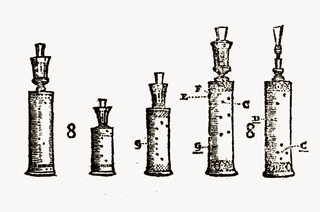
The rackett, raggett, cervelas, or sausage bassoon is a Renaissance-era double reed wind instrument, introduced late in the sixteenth century and already superseded by bassoons at the end of the seventeenth century.

M. Welte & Sons, Freiburg and New York was a manufacturer of orchestrions, organs and reproducing pianos, established in Vöhrenbach by Michael Welte (1807–1880) in 1832.

The mandora or gallichon is a type of 18th- and early 19th-century lute, with six to nine courses of strings. The terms were interchangeable, with mandora more commonly used from the mid-18th century onwards.
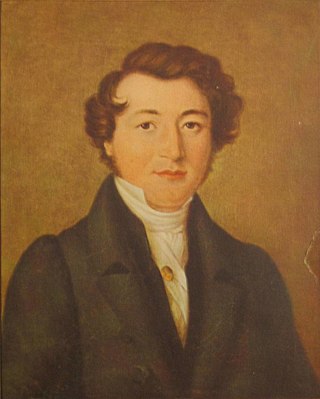
Christian Friedrich Ludwig Buschmann was a German musical instrument maker and inventor, often credited with inventing the harmonica and also the accordion.
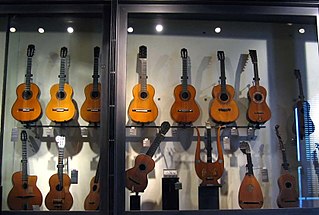
The following is a bibliography of classical guitar related publications.

The Bach House in Eisenach, Thuringia, Germany, is a museum dedicated to the composer Johann Sebastian Bach who was born in the city. On its 600 m2 it displays around 250 original exhibits, among them a Bach music autograph. The core of the building complex is a half-timbered house, ca. 550 years old, which was mistakenly identified as Bach's birth house in the middle of the 19th century. In 1905, the Leipzig-based Neue Bachgesellschaft acquired the building. In 1907, it was opened as the first Bach museum.
Olga Schwind was a German Musician. An instrumentalist and singer, she was a pioneer of the authentic instruments movement, which insisted that as far as practical music from earlier periods should be performed using instruments of the period when the music was written or, failing that, replicas.
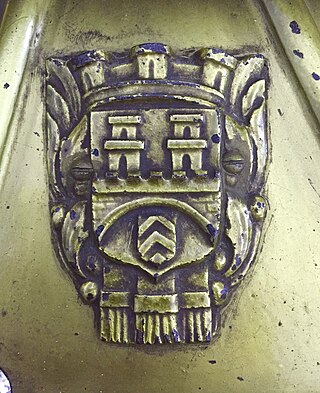
Th. Mann & Co. was a German piano factory, existing in Bielefeld, Prussian Province of Westphalia, from 1836 until 1942, as well as instrument shop for pianos and harmoniums with temporary branch offices in Gütersloh, Herford, Detmold, Rinteln and Paderborn.
Thomas F. Ertelt is a German musicologist. Until his retirement in August 2021 he had been Institut director of the State Institute for Music Research in Berlin.
Benedikt Brilmayer is a German musicologist with a focus on organology at the Berlin Musical Instrument Museum.
Dagmar Droysen-Reber was a German musicologist and museum director.

Jürgen Reulecke is a German historian and emeritus professor.
Winfried Schrammek was a German musicologist and organist.

Ulrike Liedtke is a German musicologist and politician (SPD). From 1991 to 2014 she was founding director of the Musikakademie Rheinsberg. Since 2014 she has been a member of the Landtag of Brandenburg. After her re-election in 2019 she was elected President of the Landtag.
Ruth Wilhelmi-König was a German woman stage photographer.

Oskar Fleischer was a German musicologist.
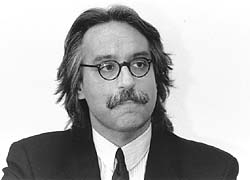
Klaus Siebenhaar is a German university lecturer, publisher and cultural manager. In addition to his academic career at the FU Berlin, where he was director of an institute of Communication Science and Applied Cultural Studies from 1988, Siebenhaar worked for several publishing houses and theatres as an editor and publisher. He then founded his own publishing house, B&S Siebenhaar Verlag, as well as the Institute for Culture and Media Management (IKMW) at the university.

Fritz Ulrich Wurlitzer was a German clarinet maker, based in Erlbach in Vogtland, Saxony. He developed the Reform Boehm clarinet and made improvements to the Schmidt-Kolbe clarinet and the German bass clarinet.
References
- ↑ Bartolomeo Cristofori und die Anfänge des Hammerclaviers : Quellen, Dokumente und Instrumente des 15. bis 18. Jahrhunderts on WorldCat
- ↑ Neuerwerbungen 1993-1994 / 10 Jahre Musikinstrumenten-Museum am Kulturforum : hrsg. anläßlich der Sonderausstellung vom 14. Dezember 1994 bis zum 28. Februar 1995. on Worldcat
- ↑ Das Berliner "Bach-Cembalo": ein Mythos und seine Folgen on Worldcat
- ↑ Faszination Klarinette on WorldCat
- ↑ ''Faszination Gitarre on WorldCat
- ↑ Good vibrations : eine Geschichte der elektronischen Musikinstrumente = a history of electronic musical instruments on WorldCat